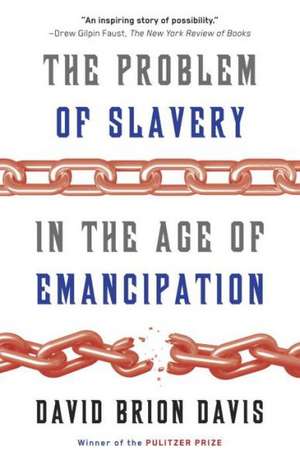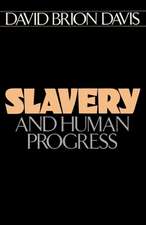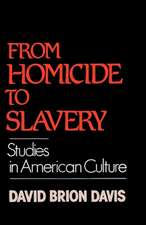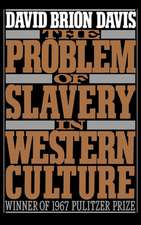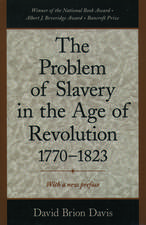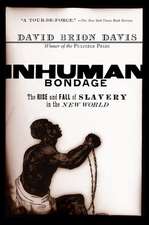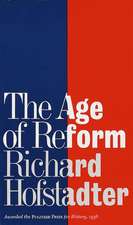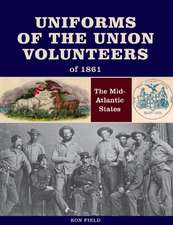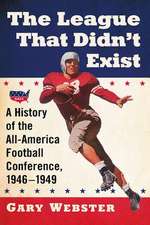The Problem of Slavery in the Age of Emancipation
Autor David Brion Davisen Limba Engleză Paperback – 13 ian 2015
Vezi toate premiile Carte premiată
With this volume, Davis presents the age of emancipation as a model for reform and as probably the greatest landmark of willed moral progress in human history. Bringing to a close his staggeringly ambitious, prizewinning trilogy on slavery in Western culture Davis offers original and penetrating insights into what slavery and emancipation meant to Americans. He explores how the Haitian Revolution respectively terrified and inspired white and black Americans, hovering over the antislavery debates like a bloodstained ghost.He offers a surprising analysis of the complex and misunderstood significance the project to move freed slaves back to Africa. He vividly portrays the dehumanizing impact of slavery, as well as the generally unrecognized importance of freed slaves to abolition. Most of all, Davis presents the age of emancipation as a model for reform and as probably the greatest landmark of willed moral progress in human history."
Preț: 135.89 lei
Nou
26.01€ • 28.26$ • 21.86£
Carte disponibilă
Livrare economică 31 martie-14 aprilie
Specificații
ISBN-10: 0307389693
Pagini: 448
Dimensiuni: 130 x 206 x 23 mm
Greutate: 0.32 kg
Editura: Vintage Publishing
Notă biografică
Cuprins
Introduction
Discovering Animalization
Some Evidence of Animalization
1 Some Meanings of Slavery and Emancipation: Dehumanization, Animalization, and Free Soil
The Meaning of Animalization, Part I
The Meaning of Animalization, Part II
The Search for the Animalized Slave
Domestication and Internalization
2 The First emancipations: freedom
and dishonor
Self- Emancipation: Haiti as a Turning Point
Freedmen and Slaves
Freedmen’s Rights
Loss of Mastery
The “Horrors of Haiti”
3 Colonizing Blacks, Part I: Migration and Deportation
The Exodus Paradigm
Precedents: Exiles
Precedents: The Displaced
4 Colonizing Blacks, Part II: The American Colonization Society and Americo-Liberians
Liberating Liberia
5 Colonizing Blacks, Part III: From Martin Delany to Henry Highland Garnet and Marcus Garvey
Nationalism
6 Colonizationist Ideology: Leonard Bacon and “Irremediable Degradation”
Bacon’s “Report” of 1823
The Paradox of Sin and “Irremediable Degradation”
Some Black Response
7 From Opposing Colonization to Immediate Abolition
Paul Cuffe and Early Proposals for Emigration
James Forten and Black Reactions to the American Colonization Society
The Search for Black Identity and Emigration to Haiti
Russwurm, Cornish, and Walker
Blacks and Garrison
8 Free Blacks as the Key to Slave Emancipation
Recognition of the Issue
Abolitionist Addresses to Free African Americans
David Walker and Overcoming Slave Dehumanization
James McCune Smith and Jefferson’s “What further is to be done with these people?”
9 Fugitive Slaves, Free Soil, and the Question of Violence
Frederick Douglass as a Fugitive
The Underground Railroad and Runaway Slaves
Harriet Jacobs as a Female Fugitive
Fugitive Slaves and the Law
10 The Great Experiment: Jubilee, Responses, and Failure
An Eschatological Event and America’s Barriers
The Enactment of British Emancipation
Some American Responses to British Emancipation
From Joseph John Gurney to the Issue of Failure
11 The British Mystique: Black Abolitionists in Britain—the Leader of the Industrial Revolution and Center of “Wage Slavery”
Frederick Douglass Confronts the World
African Americans Embrace the Mother Country
The Problems of Race, Dehumanization, and Wage Slavery
Joseph Sturge, Frederick Douglass, and the Chartists— the Decline and Expansion of Antislavery in the 1850s
Epilogue
Acknowledgments
Premii
- National Book Critics Circle Award Winner, 2014
- Cundill Prize Finalist, 2014
